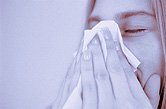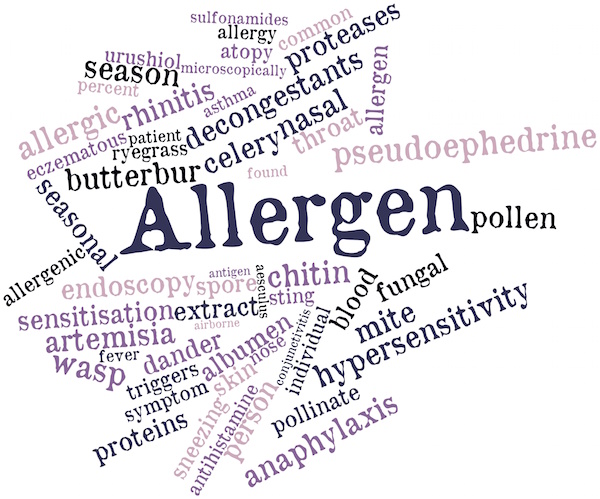
TUESDAY, Dec. 29 (HealthDay News) — Colder temperatures can bring some relief to those allergic to mold and pollen. But winter doesn’t mean the end of runny noses, itchy eyes and wheezing for asthma and allergy sufferers.
Spending more time indoors can mean more problems with dust mites, pet dander, cigarette smoke, gas fumes and household sprays and chemicals, any of which can trigger asthma symptoms.
Even the beloved Christmas tree can harbor mold spores that can bring on an allergic reaction, said Dr. David J. Resnick, director of allergy and immunology at New York-Presbyterian Morgan Stanley Children’s Hospital, New York City.
“Mold grows anywhere and needs little more than moisture and oxygen to thrive,” Resnick said.
Resnick and Dr. Stefan Worgall, chief of pulmonology, allergy and immunology at the Komansky Center for Children’s Health at NewYork-Presbyterian Hospital/Weill Cornell Medical Center, offer these tips for minimizing the chances of an allergic reaction or asthma flare-up during the holidays:
- Mold and dust mites thrive in humidity, so keep indoor humidity level below 35 percent.
- Turn on exhaust fans when showering and cooking to remove excess humidity and cut down on odors.
- Replace your furnace filter every two to three months and use high-efficiency filters, which can remove up to 30 times more allergens. Keep the furnace fan turned on.
- Clean thoroughly to reduce dust mites, which eat household dust, a mix of shed hair, flakes of skin, soil particles, clothing fibers and pollen. Vacuum floors and furniture using a vacuum with a HEPA filter frequently. Don’t keep many old books, stuffed animals and knickknacks, which are also places where mites collect.
- Mites multiply in carpeting, so, if possible, go with hardwood or tile floors in bedrooms. Consider using allergy covers for mattresses, box springs and pillows. Hot water kills dust mites, so try to wash bed linens and nightclothes in water above 130 degrees.
- First frost kills most mold outdoors. Even so, keep children from playing in areas that mold prefers, such as dark, damp wooded areas and piles of fallen leaves.
- When using a humidifier, maintain it properly. Keep it clean and change the water frequently to avoid mold and bacteria growth. Spray central humidifiers with an anti-mold agent.
- If you have dog and cat allergies, avoid being in households with pets, or at least keep contact to a minimum. Keep pets out of the bedroom if you are allergic.
- Dust your holiday decorations, ornaments and artificial tree. Next year, hose off a real one outside before bringing it into the house, and pay special attention to the trunk.
More information
The Asthma and Allergy Foundation of America has more on preventing allergic reactions.

